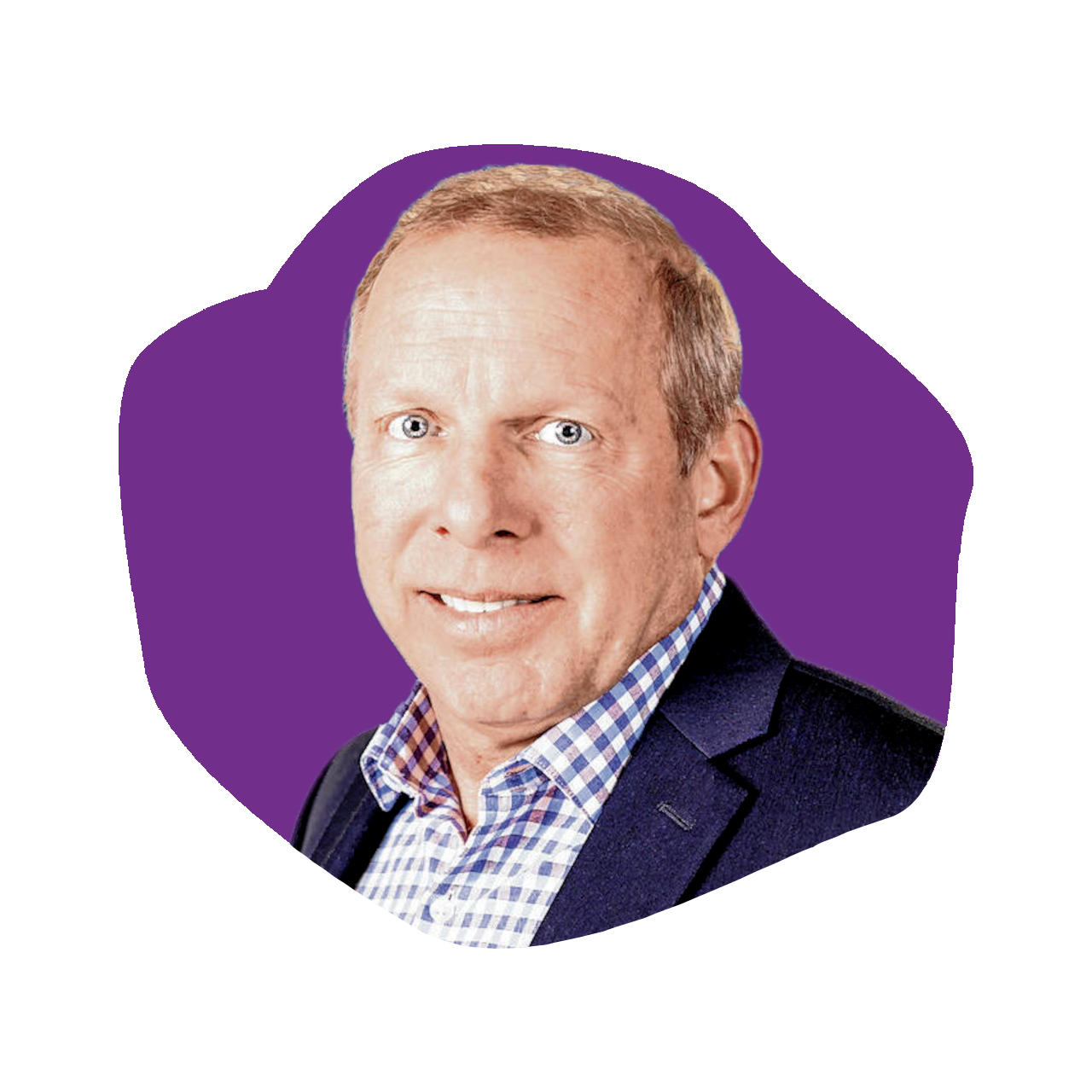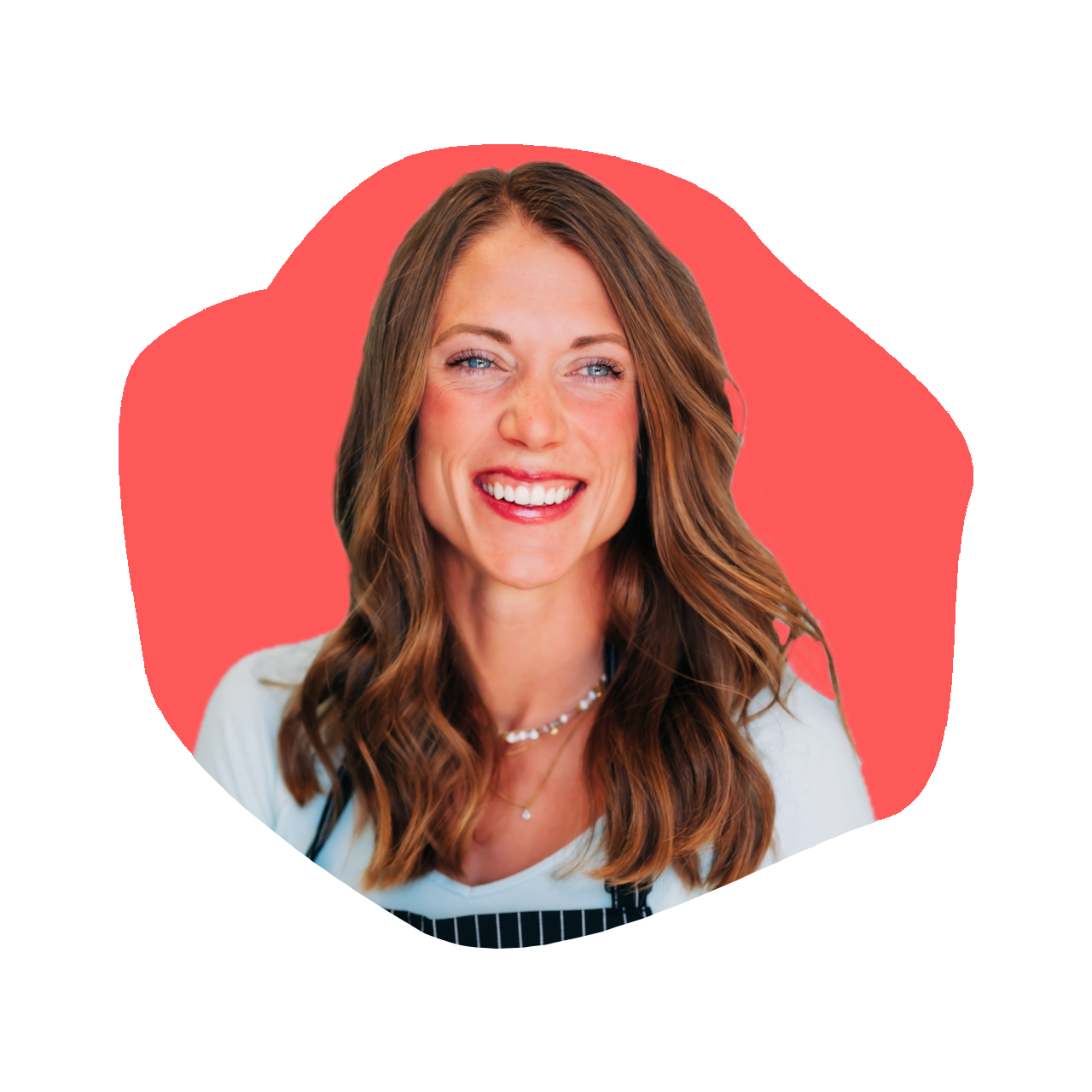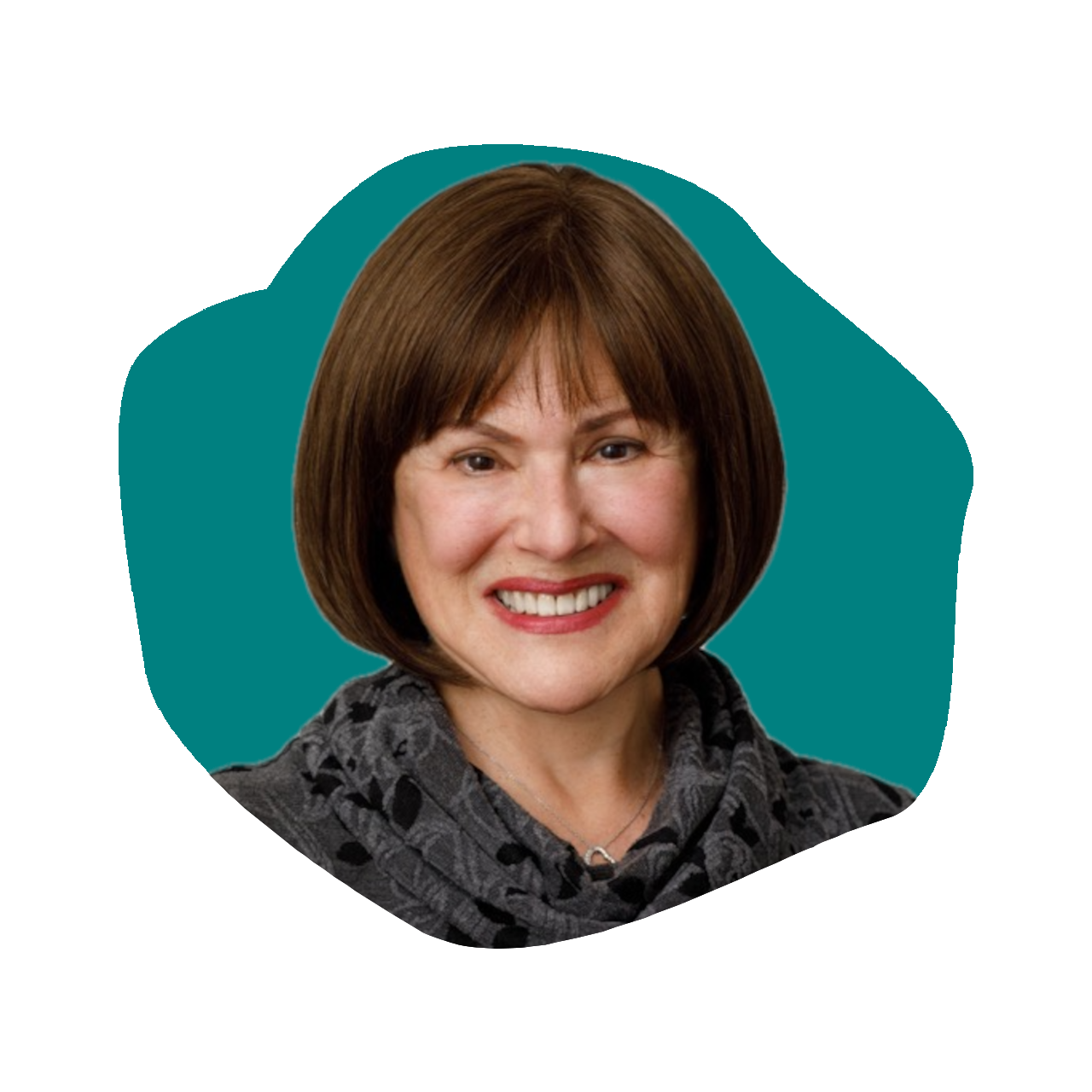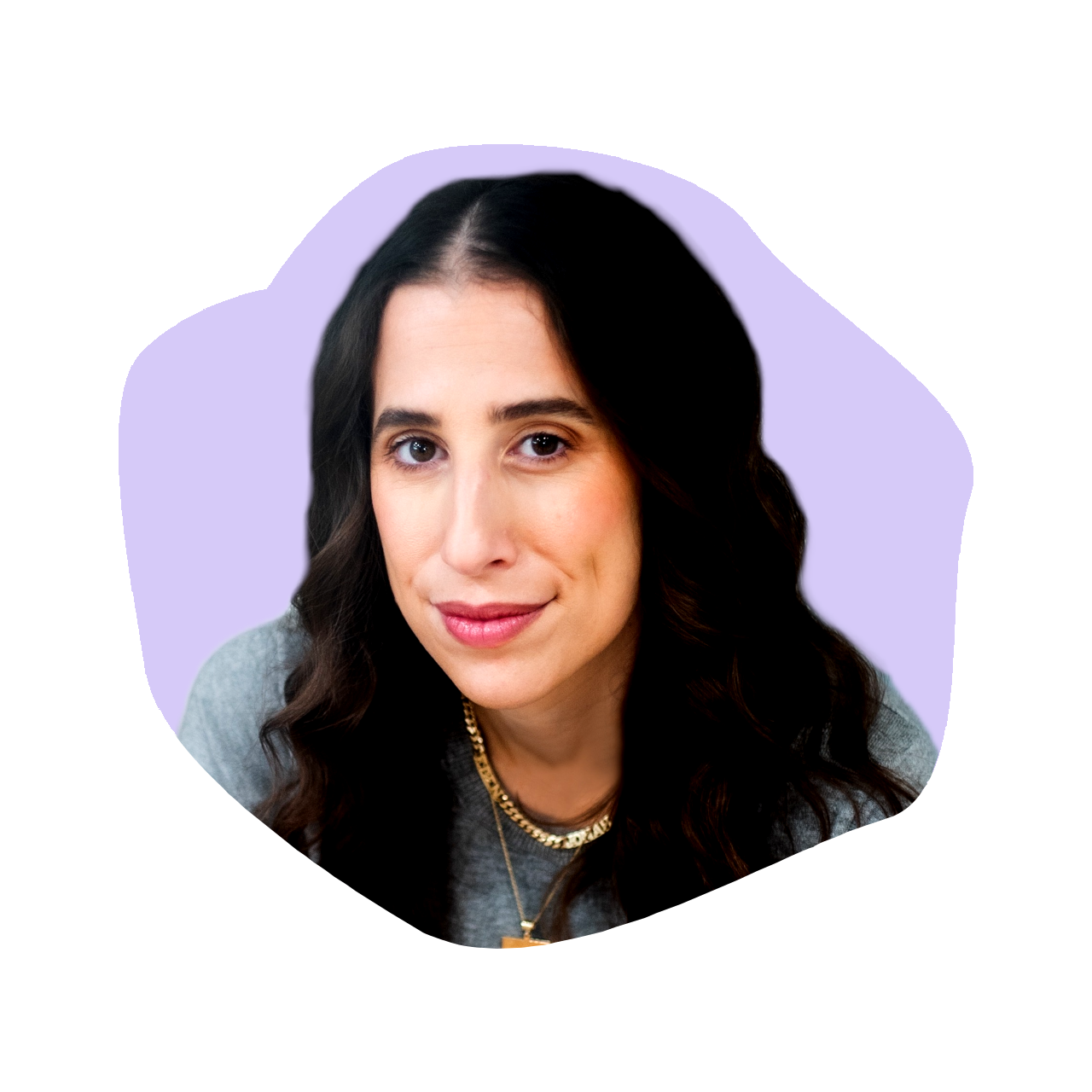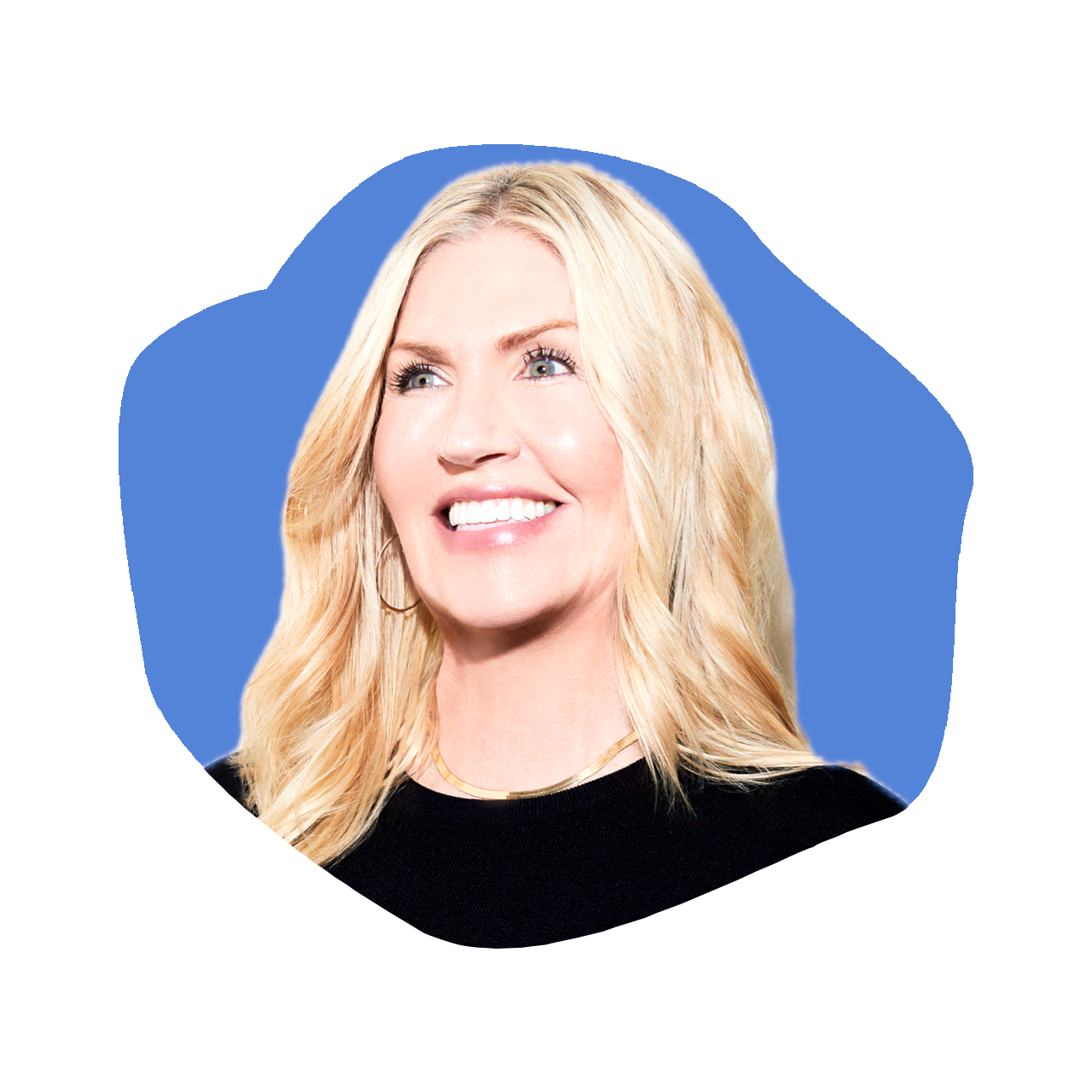Sarah Dusek: Author of Thinking Bigger
Episode 583
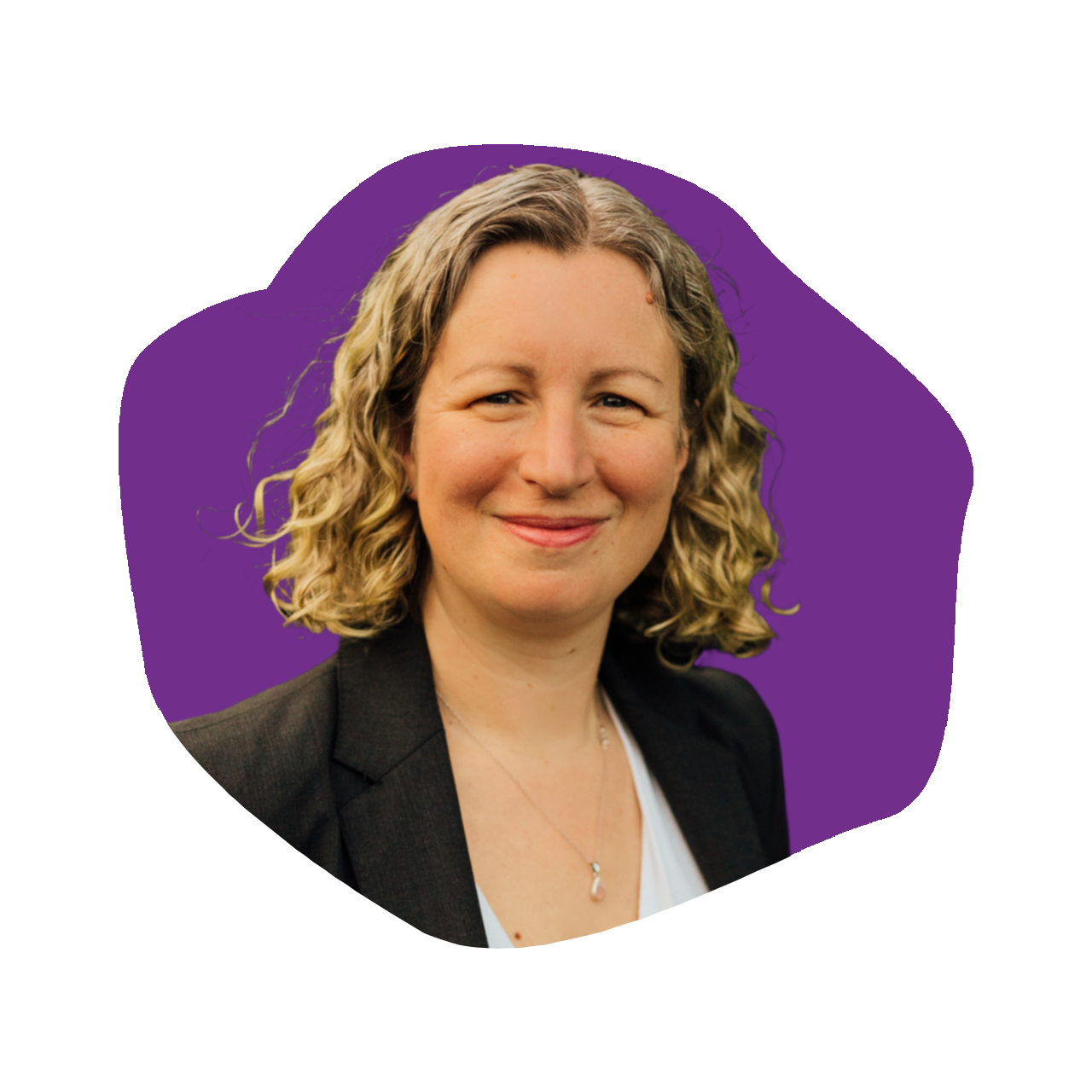
On this episode of The Kara Goldin Show, Sarah Dusek, author of Thinking Bigger and founder of Enygma Ventures and Under Canvas, shares her extensive experience from creating a leading glamping business to championing women-led enterprises in Africa. She discusses launching Enygma Ventures, a venture fund dedicated to elevating female entrepreneurs in Africa, and the lessons encapsulated in her book Thinking Bigger. Sarah delves into the motivations behind her shift from hospitality to venture capital and outlines the pivotal strategies she's employed to foster growth and innovation. She explores the challenges of securing venture capital for women and offers actionable advice for aspiring entrepreneurs, drawing on her own successes and setbacks. Throughout, Sarah provides insights into balancing life as an entrepreneur with personal commitments and the importance of maintaining integrity in business. This episode is packed with practical wisdom for anyone interested in entrepreneurship, venture capital, or leadership, making it a must-listen. Make sure to have your notebook ready—you won’t want to miss a moment of this enriching conversation! Now on The Kara Goldin Show.
Resources from
this episode:
Enjoying this episode of #TheKaraGoldinShow? Let Kara know by clicking on the links below and sending her a quick shout-out on social!
Follow Kara on LinkedIn – Instagram – X – Facebook – TikTok – YouTube – Threads
Have a question for Kara about one of our episodes? Reach out to Kara directly at [email protected]
To learn more about Sarah Dusek and Thinking Bigger:
https://www.linkedin.com/in/sarahhdusek/
https://www.enygmaventures.com/
https://www.fewandfarcollection.com/lodges
https://www.amazon.com/dp/1647125081
https://www.sarahhdusek.com/
Transcript
Kara Goldin 0:00
I am unwilling to give up that I will start over from scratch as many times as it takes to get where I want to be. I want to be you. Just want to make sure you will get knocked down. But just make sure you don’t get knocked out, knocked out. So your only choice should be go focus on what you can control. Control. Hi everyone, and welcome to the Kara Goldin show. Join me each week for inspiring conversations with some of the world’s greatest leaders. We’ll talk with founders, entrepreneurs, CEOs and really, some of the most interesting people of our time. Can’t wait to get started. Let’s go. Let’s go. Hi everyone, and welcome back to the Kara Goldin show. I am so thrilled to have my next guest here, who is a friend and fellow EY winning women. That’s how we originally met. But we have Sarah Dusek, who is the author of an incredible book called Thinking Bigger that you all need to get a hold of. Read, devour. It is so amazing. She is not only an entrepreneur and about to become a serial entrepreneur, but also she is a managing partner at Enigma ventures, which is a private investment fund that champions women, led businesses in Africa, where she originally hails from, and still spends a good chunk of her time there. But before launching Enigma ventures in 2019 and penning her book, she founded an incredible company that is called Under Canvas, and it is the premier glamping destination currently in the US. And I’ve been to a few of her locations so, so incredible. She actually successfully sold the company in 2018 and a lot of her lessons and journey along the way is in this book, Thinking Bigger, just an incredible book about the journey, but also offering invaluable lessons that she not only learned from her own experience, but also from just knowing and and trying to mentor and help other entrepreneurs as well. So I can’t wait to delve into her insights on how to think bigger and shatter barriers in the world of entrepreneurship. So let’s get started. Welcome to the show, Sarah. Thank
Sarah Dusek 2:34
you so much, Kara. It’s so good to be here and so good to see you again.
Kara Goldin 2:38
So so good to see you. So before we get into the book, which, as I said, is just absolutely terrific. I know it’s been a few years in the making of getting this out there, but let’s talk about Under Canvas. And that’s kind of where we met. And I was just blown away by this concept, I think I probably was one of your first customers when I had heard that it was happening. And definitely just such an incredible experience, for sure. So what? How did the idea come up? About Under Canvas?
Sarah Dusek 3:18
Well, I always consider myself an accidental entrepreneur, because I did not start my career in entrepreneurship, like many people actually don’t. I started my career as an aid worker, working in Africa and the Far East for a long while in my 20s. And it wasn’t until I hit a burnout moment, which was pretty severe and pretty horrific, that I realized there were other ways to do good in the world. There were other ways to get, you know, to drive change, be the, you know, make things happen in the world that I wanted to see happen in the world. And I realized the vehicle that was really good at doing that was business. It’s like businesses exist to solve a problem. Entrepreneurs exist because they are solving a problem that they can see. And that made me think, okay, if I can see a problem, maybe I could create a sustainable solution to that problem by building a business. And so we, I, as you said, I lived many years in Africa, returned to the US with my American husband, and we wanted to see if we could create access to the outdoors and make the outdoors accessible for people, and at the same time, try and engage people in caring for our planet and connect them if, because, if You connect with the outdoors and you love the outdoors, you’re going to care for the planet a whole lot more. So we had this idea to reimagine the safari experience. So we ended up building Safari style lodges across the United States outside of national parks, and that became um. Under Canvas after various different iterations of it. But that’s the business that exists today. But was born out of the idea of, can we solve a problem and our own problem? It was our own personal problem to start with, which was my husband loved the outdoors and I loved the outdoors, but did not love camping. Did not want to go poop in the woods, yeah. And how are we going to coexist with with having a life together if he wanted to spend all his time outdoors, and I did not want to rough it. So this was the bridge. It’s like, could we create a comfortable way for us to exist and experience the outdoors together?
Kara Goldin 5:36
So incredible. And which was your first one that you that you built
Sarah Dusek 5:41
Yellowstone? Yeah, we bought Yellowstone first. That was back in 2012 So a while ago now,
Kara Goldin 5:48
it was such a big undertaking. I can only imagine it sounds, sounds easy enough have these glamping tents. Sounds so simple. And I can only imagine when you look back on kind of the most significant challenges, especially in those early days, what were they
Sarah Dusek 6:07
or I mean, they were they were endless, but certainly never more pressing was the lack of cash. We bootstrapped the business from the get go. And, you know, every entrepreneur has this, this problem, but if you’re trying to build a hotel, variably, need a fair amount of cash, and we, we really had none. And so I was juggling credit card balances and, you know, trying to drive income and pay a bill over here and pay that. I mean, it was, was very brutal, you know, and we literally risked everything we had to try and make it happen. So the stress of lack of cash was definitely a very real, very painful, difficult undertaking with trying to grow and scale the business and even get the business started. So that was that was a big one, and then the practicalities of creating a product that actually works and that people want. Our first iteration of Under Canvas. We had tents that would fall down in storms and, you know, hose pipes that would leak water and flush sewage every I mean, it was, it was carnage. So, you know, those two big issues combined. You know, actually having a product that people want and that will pay for and that works was really, really hard. And, you know, we used to joke about it all the time. How hard can it be to put tents in a field? Looks super easy. It’s really not. And you know, everyone who’s ever worked it Under Canvas would testify it’s really quite an undertaking to pull off. And you put it down every season. You put it up in the spring and take it down in the fall. And you know, has to withstand enormous weather and smoke and fires and floods and torrential rain and storms and snow. And so it’s, it’s, it’s, it was a beast. It was a very stressful beast, that’s for sure.
Kara Goldin 8:08
And how many total locations I know they have the Under Canvas, and then they have a loom of a loom, a loom, right looms. So which I went to as well, which is just super, super great. So how many total locations now? We’re
Sarah Dusek 8:25
12 now and opening Yosemite next year. So that’s the next big one that’s coming amazing.
Kara Goldin 8:32
So everybody needs to look out for Under Canvas, too. If you haven’t tried it, I mean, it’s, it’s really got Sarah and her husband all over. It such an incredible feat of and great example of Thinking Bigger for sure. Then you went from Under Canvas, you remained on the board, and then you decided to go back to your I guess you never really left South Africa and, but you decided you split your time now, right between the two countries. And, yeah, and you decided to found a company called Enigma ventures. Can you talk a little bit about that and what the goal was there
Sarah Dusek 9:18
that was really born again out of a frustration. I’m trying to solve a problem, which was a realization that women were being woefully underfunded. And my own journey with trying to raise capital for Under Canvas was challenging and difficult, and particularly not having a tech company. I mean, you will have experienced this two carer to a degree like, you know, you have a consumer product. There’s a different market, different metrics, different challenges with trying to raise money for for companies that are not purely tech. And I was finding very few women in the space I was meeting. Lot of white men who honestly were quite Sharky. And I found it a world in a space that I didn’t love. And I kept thinking to myself, it surely doesn’t have to be like this. It surely the investment space doesn’t have to feel and look quite like it does, and there should be more money. There should be more women in the ring. And if more women were in the ring, then maybe more women would get funded. And if more women are getting funded, we’re going to build a better and a different world than the one we’re building right now, because we’ll have a diverse group of people seeing problems, solving them, creating solutions that for everyone. And so it just made me think when, if, during, and this is in the book, that during the process of my my fundraising challenges, I kind of made an inner pact with myself that said, if I did ever sell my company, if we did ever have an exit that was, you know, substantial. The one of the things I would do would be to invest in other women. And so when we sold them to Canvas in 2018 we launched Enigma ventures there later, to focus on investing in women entrepreneurs. And of course, over the course of the last five years of being on that journey of walking with other women, I realized that a lot of the things that I didn’t know with scaling my company and trying to grow my company, a lot of women don’t know, and it’s kind of like the investment world is a bit of a boys club, and what it takes to build and grow and scale a company, a lot of women just don’t understand. We’re just not thinking big enough. We’re not building the right kind of companies, which made me think, ah, there’s a there’s a story to be told here, and there’s information to be imported. And so that was the launch of Enigma ventures. And subsequently, you know what led to the writing of the book incredible.
Kara Goldin 12:01
Well, I was going to say that’s a great lead in to Thinking Bigger. And kind of the key messages behind it so you discuss the importance of breaking free from limiting your mindset. So practical steps that women can take to start Thinking Bigger about their business potential. I know you’ve invested in a number of companies. I’ve met a few of your portfolio companies as well. Really, really incredible. But what are some of the steps that you get women to start thinking about in order to think bigger? Because people have an idea, but you, obviously you’re investing in them, but you also, at some point want to return this investment, and you want to make sure that they’re thinking about the right things and make sure that they’re Thinking Bigger. So what are what is the exercise there?
Sarah Dusek 12:55
It’s been an interesting journey switching the sides of the table from being an entrepreneur to also being an investor, because you start to see the equation differently. You start to realize what is it that we are looking for here in trying to spot somebody or something that’s going to be a runaway success, because every investor is, as you said, looking to make money, and so you’re trying to make a good bet. And what I started to notice was that women were generally positioning themselves too small. They were generally not thinking about the kind of scale that you and I know is really, really critical. They were not thinking about, what’s the path to 100 million here, what’s the path to being worth $100 million they were tending to think about, you know, how do we build million dollar companies? And thinking that was a big deal. And of course, women have been very conditioned to think about building a small business. So many women across the United States and around the world are small business owners, and the reality is so many of those small businesses could actually become something so much bigger, if we just started to think about it differently, if we understood the building blocks of scale and we understood the mindsets that hold us back. And throughout the book, it talks about numerous mindsets that trip us up as women, from imposter syndrome to scarcity to playing it safe, not managing risk, they’re endless, and I talk about them all the way through the book, because it’s not just the women aren’t thinking big enough. It’s also that we have these ways of thinking that trip ourselves up, or they keep us playing small games. And so the book unpacks, you know, not what it not only what it takes to think about funding your business or scaling your business, but also the mindsets that really, really get us stuck and hold us fast. And you know, you ask the question, what are the steps to. Overcoming those mindsets and and really, the first step is starting to notice the mindsets that you have. And the my whole hope with this book is that women will start to see, oh, maybe, maybe that mindset is a mindset for me like and I didn’t even realize it. I didn’t even realize that this thing might be holding me back, or this issue might make me stuck. And that’s what’s exciting, I think about the book, it’s like this, this blueprint that gives you real, practical building blocks, but at the same time helps you do the work, the internal work, that’s maybe required for helping you take your business to the next level.
Kara Goldin 15:39
Definitely well, and it’s very, I think it’s very motivating to to read something, especially coming from an entrepreneur, because you come at it from you are a founder, you’ll always be a founder, right? But you’re also sort of sharing these lessons that you’ve learned. One of them is understanding financial metrics like CAC and EBITDA and and all of those critical, critical things. I think it’s also when you think about understanding who’s on the other side of the table, right, and sort of what they’ve been living and breathing, those are so essential. Yet so many founders are no idea they have, I had no idea. Yeah, they have no they have no idea how to approach it. So like CAC, for example, do you want to just take a stab at CAC and EBITDA? Yeah, of
Sarah Dusek 16:31
course. Your Cust, your cost of your customer acquisition, your CAC, a cost of acquiring a customer. And I remember walking into the room one time when I was first starting to meet with investors, and it was in San Francisco, and I had a whole bunch of investors lined up to meet that day, and I walked in to the room, and the guy, kind of he had my deck open in front of him, but he barely looked up above the deck. He just glanced at me, and then he started rattling off these, you know, questions, one after the other to me, and he said,
Kara Goldin 17:07
What’s your CAC? And
Sarah Dusek 17:09
I was like, what sounded like a rude word, I have no idea what you’re talking about. And I kind of looked around and I suddenly thought, am I in the wrong room? You know, like you have those awful moments when you think, did I just walk into a room that I shouldn’t be in? And I said, like, like, went bright red, and I said, I don’t know. And he kind of like, scowled at me, and then he kind of shouted at me, your cost of your acquisition of your customers. And I was like, I was really embarrassed, but then I realized I could tell him what my marketing costs were, I could tell him how much we spent on marketing and what our revenue was, and he just kind of dismissed me, and I knew I had blown it, because I just didn’t know my I didn’t know my numbers in a in the way that they wanted me to know them. Same with EBITDA, right? I’m, I must have been many years. I’m very embarrassed to this, but I was many years into running my business, and we were probably doing like, five or $6 million by this point, before I knew what the term EBITDA meant. And EBITDA is stands for earnings before interest, depreciation, amortization and taxes, which is a long acronym that basically means your net income. What is your net income? What’s your bottom line? It’s your profit. And of course, I knew what my profit was. I was very, very clear on how much money we were making or not making, but I had no idea what the terms meant. And so because I didn’t know what the terms meant, I didn’t know how to present useful information to investors. I didn’t know how to present data in a way that would make sense to them and could showcase my business off. I didn’t know that you know how you think about growing and scaling your EBITDA affects how people will think about your valuation, how valuable your company is so there were so many things, and as I, you know, switched sides of the table and became an investor, the things that I was embarrassed about and realized, because I thought everybody knows this stuff, I’m the only one who doesn’t know, I realized that’s really not true at all. I mean, maybe I don’t have an MBA, and maybe if you’ve got an MBA, you know this stuff. But if you don’t, and you’re an entrepreneur and you’re trying to solve a problem and make things happen, a lot of this stuff will be new. And that’s what I that’s what I discovered for a lot of women. This is, this is new stuff. And it’s like, how can we build valuable companies if we don’t know the metrics that matter? And so the metrics that matter, ladies are in the book Absolutely,
Kara Goldin 19:42
and in every industry. I mean, it doesn’t. It’s not just in the travel industry or in B to C companies the same. Yeah, it’s possible, absolutely, absolutely. So that really leads into building. A strong and you know, kind of loyal base of investors as well. And it’s not just about acquiring investors when you know this, but also, you know, really being able to communicate with people that most people who are putting money into your company absolutely so when you think about other things that are really critical in kind of Thinking Bigger. You talk a bit about this in your book, but building a strong and loyal community around the brand, which you did so well with Under Canvas.
Sarah Dusek 20:37
Do you did too? Thank
Kara Goldin 20:39
you. And you know, and I really see that as such a key piece for so many brands. And you can’t just have the financials. You have to actually pay attention to making sure that you’re satisfying your consumer. Sounds so obvious, but it’s crazy how many people do not focus on that, especially if it’s a B to B Company, I feel like, you know, that’s just so key. So What strategies did you find kind of most effective in building a strong and loyal community around not just Under Canvas, but what do you see as really the most effective?
Sarah Dusek 21:16
Well, I think the interesting thing about building brands, and you’re 100% right. Carer brand. Building a strong brand identity is a is really what helps boost a value of a company. It helps boost your bottom line. It helps drive your revenue in the first place. But it also create, it creates a positioning in the market that says, This is who we are, this is what we’re about. This is what we care about. And for me, much like you, brand has always been about identifying with the mission that we’re on and communicating the heart and soul somehow, along with your messaging, which is what your brand is all about, right? Not just your name or your logo, but the messaging that you are communicating about your company is all about communicating your heart. And I am 100% convinced that the consumer is interested in companies with soul, and that’s what I think is so critical for entrepreneurs to understand. It’s not just about coming up with a great idea and solving a problem that you don’t care about, when you really care about the problem and when you really are invested in creating a solution to a problem and creating something that people want and people love, part of that is Communicating the mission that you are on with your business, and that is about how you build brand identity and creating a sense of recognition. And we can see that in design, we can see that in labeling. We can see that in packaging. We can see it intense. We can see it in, you know, all the marketing materials that you put out into the world, but it’s like, how are you communicating? This is what’s important to us, and creating recognizable threads for people, so that you can spot something easily from a distance and go, Oh, that’s that’s Under Canvas, because look at the iconic tents they’ve got, and they’re very identifiable. The imagery is identifiable. The messaging is identifiable and the same. When you’ve got a product on the shelf, right? You know you want your brand to stand out and people to be able to spot it a mile off and go, Oh, there it is. And I know what this brand stands for. I know what this brand cares about. I know why I like drinking this water, because it’s not only tastes good, but I know what the company cares about, and I know why it exists, and that’s for me, that’s about heart. And I think women do that very well. I think if women are really, really good at stuff, I think we tend to be much better at building brands with heart and communicating the soul of our companies through our brands. I
Kara Goldin 23:58
totally agree. So you talk about risk taking too, which I think is is also a really key piece for for any entrepreneur to be able to think bigger. And again, it’s not just one component. There’s all different components, and this is definitely one, whether it’s your own story, or maybe some other entrepreneurs that you’ve been in touch with that have kind of applied the principles of Thinking Bigger. Can you share a story or an example on that?
Sarah Dusek 24:33
Well, I can. I can share the antithesis of that, which is I’ve met, met many people who want investors to be their safety net. And, you know, looking for investment, so you don’t have to take any risks. So like, if you you put your money in and I’ll make something happen. And sadly, entrepreneurship doesn’t work like that. You have to be all in everything on the. Line, or, you know, almost everything on the line. You’ve got everything, heart and soul in this thing, and you’re making it happen, your skin and your shirt and everything else is in the game. And then maybe someone else will take notice and back you because of what you’ve already done. And I liken it with, you know, entrepreneurs like investors, like pouring fuel on an already lit fire. They don’t love trying to rub two sticks together and make fire from nothing. That’s the entrepreneur’s job. And so often building a business really feels like that. It’s like, can I make any fire? And some, sometimes the wood sweat. Sometimes, you know, there’s no spark, you’ve got no kindling, like you’ve got it going, and then a storm comes and it blows it out, and it’s like it’s all over, and then you have to start over again and over again and over again. But that’s the entrepreneurial life. It’s it’s having the grit and the determination to make fire out of literally out of nothing, and those that can, and those that do, you know, have the potential for other people to come alongside them and pour some fuel on that fire and make it ginormous. But building the fire in the first place and rubbing those sticks together and making something happen is, is hard. It’s really, really hard. It’s, you know, there’s the age old saying, it’s a it’s a lot easier to make money with, with money, and it definitely is and and often entrepreneurs are penniless, moneyless. And that’s the challenge is, like, how do we make money out of nothing? How do we create a product when we’ve got very little? How do we do something? But in reality, those are the kind of entrepreneurs that investors are looking for. They’re looking for people with with who are not afraid to take big risks, who are not afraid to go all in on an idea. And, you know, have it cost them something to make it happen and show the world what you’re capable of.
Kara Goldin 26:58
I love that. And I mean Thinking Bigger, it’s such a great reminder of that, and you have so many great stories and insights and and reminders along the way. The one thing before we close up, I know that you’ve got a new business that you’re launching. Can you talk about that?
Sarah Dusek 27:21
Yeah, yeah, we just launched travel company number two. I never thought I would build another travel company after having travel company number one. But once you’re an entrepreneur, you’re always an entrepreneur, and it’s almost like you can’t help yourself, but want to try and make some fire. So we launched few and far earlier this year, and we are taking people on safari style adventures around the world. We are building our first lodge in South Africa right now, again, reimagining the safari experience and trying to move us forward. We’ve got big carbon projects that we’re involved with, trying to do something very regenerative in order to make an impact on the planet, not just being sustainable, but being regenerative. So we’re super excited about all of that. I mean, again, it’s another massive undertaking, but here we are rubbing our sticks together again. Well,
Kara Goldin 28:18
I think coming from you, I’m I’m very, very excited to see this brand grow, for sure, and I will definitely be watching it, and everybody will have all the info in the show notes. But Thinking Bigger. By Sarah Dusek, it’s so good to see you, and such a great, great read for sure. So best of luck with everything, and thanks everyone for listening.
Sarah Dusek 28:42
Thanks so much.
Kara Goldin 28:43
Thanks again for listening to the Kara Goldin show. If you would please give us a review and feel free to share this podcast with others who would benefit and of course, feel free to subscribe so you don’t miss a single episode of our podcast. Just a reminder that I can be found on all platforms at Kara Goldin, I would love to hear from you, too. So feel free to DM me, and if you want to hear more about my journey, I hope you will have a listen or pick up a copy of my Wall Street Journal, best selling book, undaunted, where I share more about my journey, including founding and building hint, we are here every Monday, Wednesday and Friday. Thanks for listening, and goodbye for now. You.





